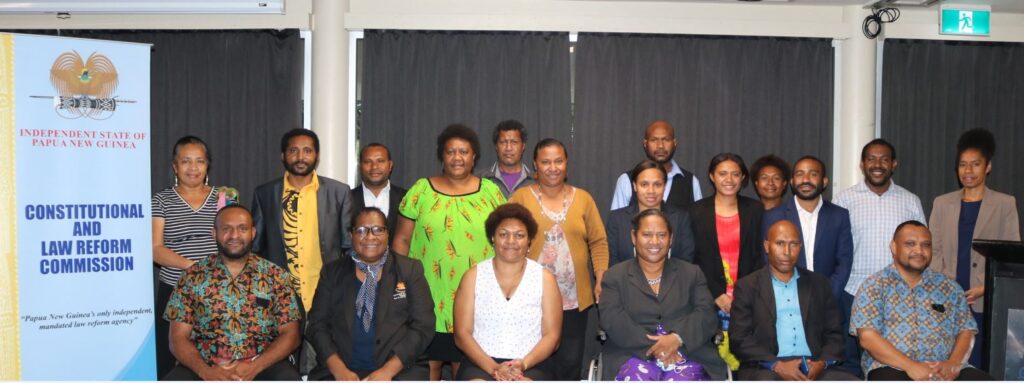DPM Suggests Creation of a Real Estate Regulator

DPM who is participating as member of the Constitutional Law Reform Commission’s Working Committee reviewing laws relating to Real Estate, has recommended to the committee that a Real Estate Regulator needs to be established.
The review has come about due to the absence of laws to regulate the real estate industry in the country.
DPM’s participation as a working committee member is for the welfare of public servants, to making sure they can afford to rent a place, own homes, or have a decent place to live and serve the people.
Lack of policy on Real Estate to regulate the industry has left residential and commercial estates to put high rentals and prices in reaction to market forces.
The four main real estates that CLRC and the government agencies such as DPM are looking into are;
· Residential Estate
· Commercial Estate
· Industry Estate, and
· Land Estate
Speaking during the NCD and Central Provincial Consultations on the Terms of Reference N0.16, which is to review the laws on Real Estate industry in PNG, DPM Rep, PSIH Executive Manager, Nancy Levi, recommended to create a separate body or Authority to regulate the Real Estate Industry.
Levi said DPM is concerned about public servant’s welfare, and are involving in bringing governance to the National Housing Commission.
“Overtime, due to accountability, transparency and governance issues has forced government agencies to step in and start buying and delivering homes to their staff,” Levi said.
This has caused DPM to create a ‘Whole of Government Housing Committee’, that is chaired by PM NEC and co-chaired by DPM Secretary, Ms Taies Sansan.
NHC are summoned to report back to the chair on the progress of their work.
A total of 16 grey areas or loopholes have been identified for NHC to address.
DPM has put up a matrix for the ‘Whole of Government’ program, which has seen 14 agencies within NCD running the home ownership program.
“DPM wants to see government agencies delivering for their staff, and we also want to bring back governance to NHC, so that we can realize the government’s efforts, as well as looking after the welfare of the public servants,” said Levi.
From the ‘Whole of Government’ program, DPM Secretary and PM NEC can be the voice of NHC to Treasury and the National Planning and Monitoring.
“In future DPM will have to back out in housing issues, and concentrate on HR matters alone,” said Levi.
DPM is also working in resenting an issue paper to NEC on the ‘Whole of Government Institutional framework’.
DPM has developed the matrix or tool kits to manage institutional homes, so they would incorporate it into NHC’s policies, so this can help managing institutional houses at the district level.
The HR development strategic plan 2021—2030 talks about moving the HR functions to the district level, so they can recruit public servants from district up.
This has allowed DPM to come up with a model called 70—20—10 model.
80 per cent of the workforce are at the district and provincial level, while 20 per cent is in NCD.
Recruitments will soon happen at the district and provincial levels, and DPM’s concern is to make houses available before recruitment is taking place.
That is why DPM is involving with CLRC, NHC and other state agencies to ensure they realize this for the government, and that houses are provided at the district level.
DPM is also working with Nambawa Super so they can come in as development partners to develop institutional homes. DPM sees it as a way forward for government service delivery.
